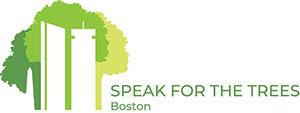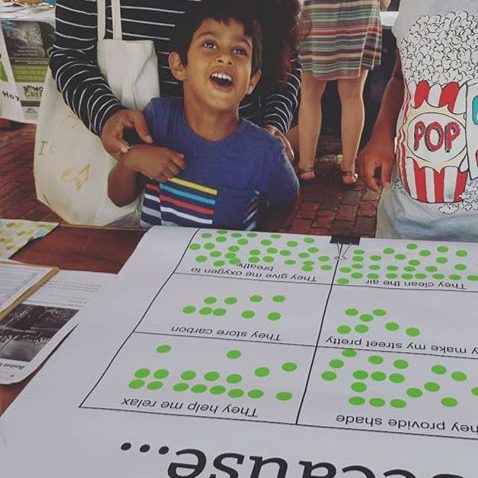Urban trees are a critical asset to cities.
Trees reduce energy usage, remove air pollutants, filter stormwater, and cool hot city streets by providing shade and releasing water vapor.
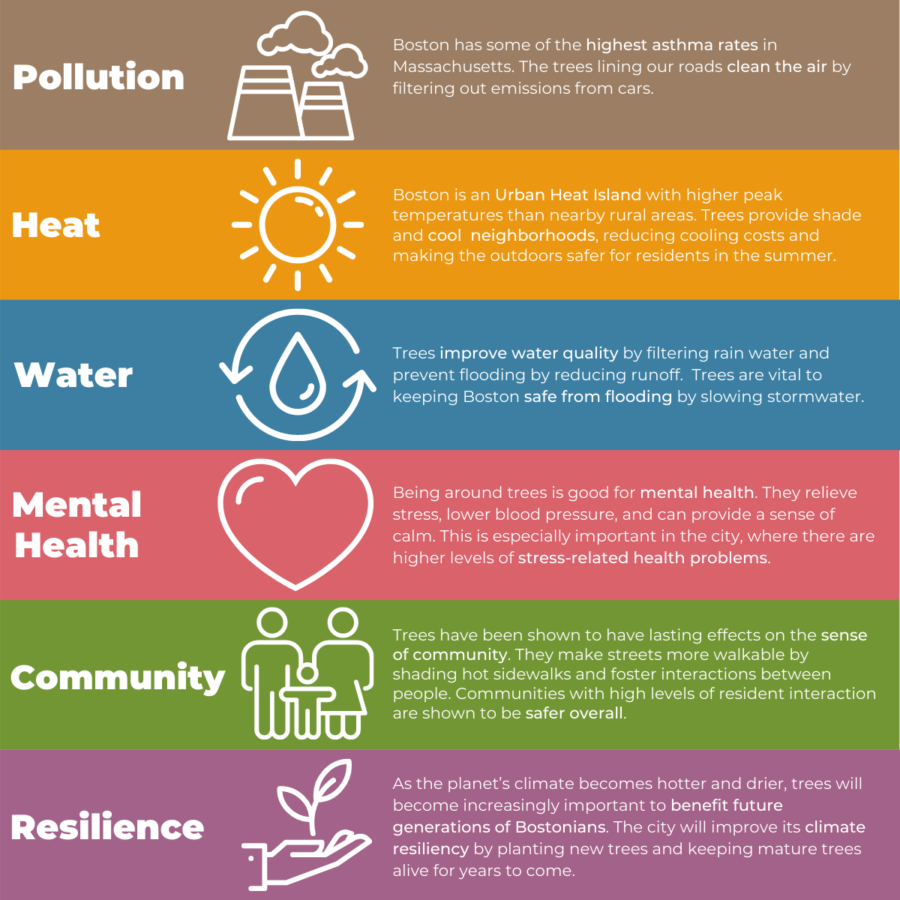
Health benefits from urban trees
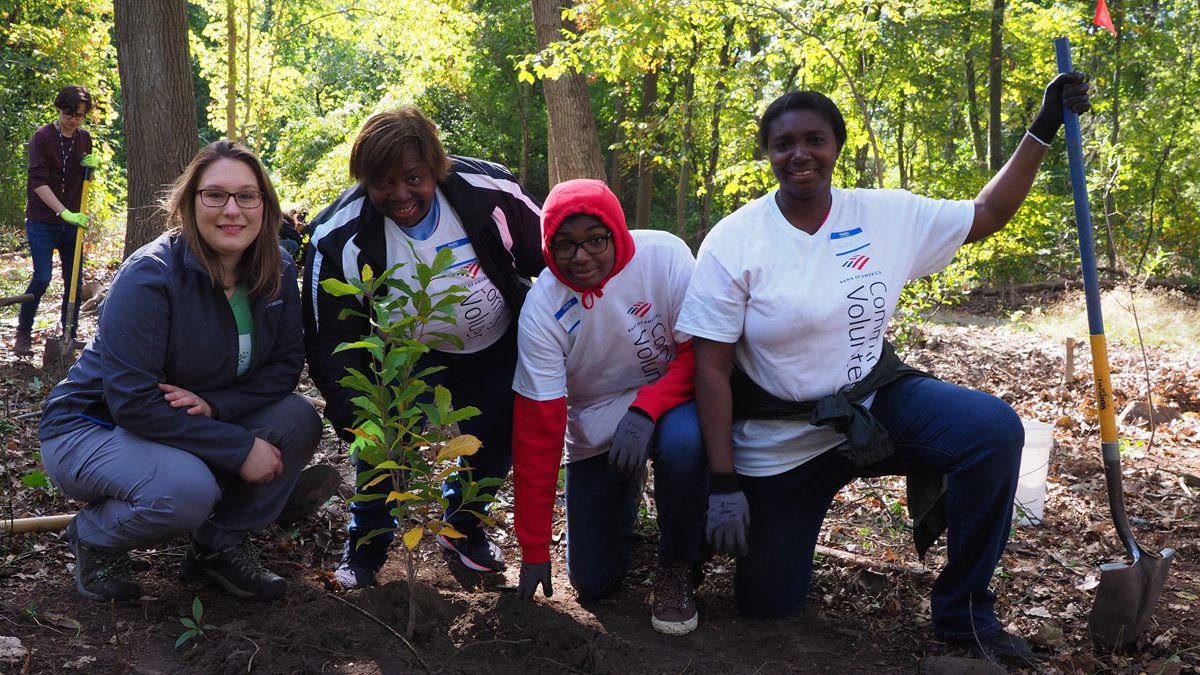
Volunteers at Sherrin Woods tree planting event. Photo: SFTTB
The mental and physical benefits of trees for residents are numerous. A growing body of evidence links exposure to trees with reduced rates of mortality, cardiovascular disease, stress, and depression. Living in greener areas is associated with higher levels of happiness, cognitive development, and learning outcomes. These benefits are related to a decrease in exposure to air pollution, noise, and heat, increased contact with nature, and strengthened social cohesion.
Take the example of this London Planetree in East Boston with a diameter of 24 inches. According to the US Forest Service, every year this tree conserves 1,843 kWh of energy, filters 3,244 gallons of stormwater, stores 3,145 pounds of carbon dioxide, and removes 3 pounds of air pollutants from the neighborhood. This amount to a saving of $117 EVERY YEAR in eco-system benefits only, not to speak of the health and mental benefits. And as this tree grows, so does its contribution to our well being.
Now multiple the benefits of that one tree by thousands, and you see the benefits of our urban forest!
Environmental justice and tree equity in the City of Boston
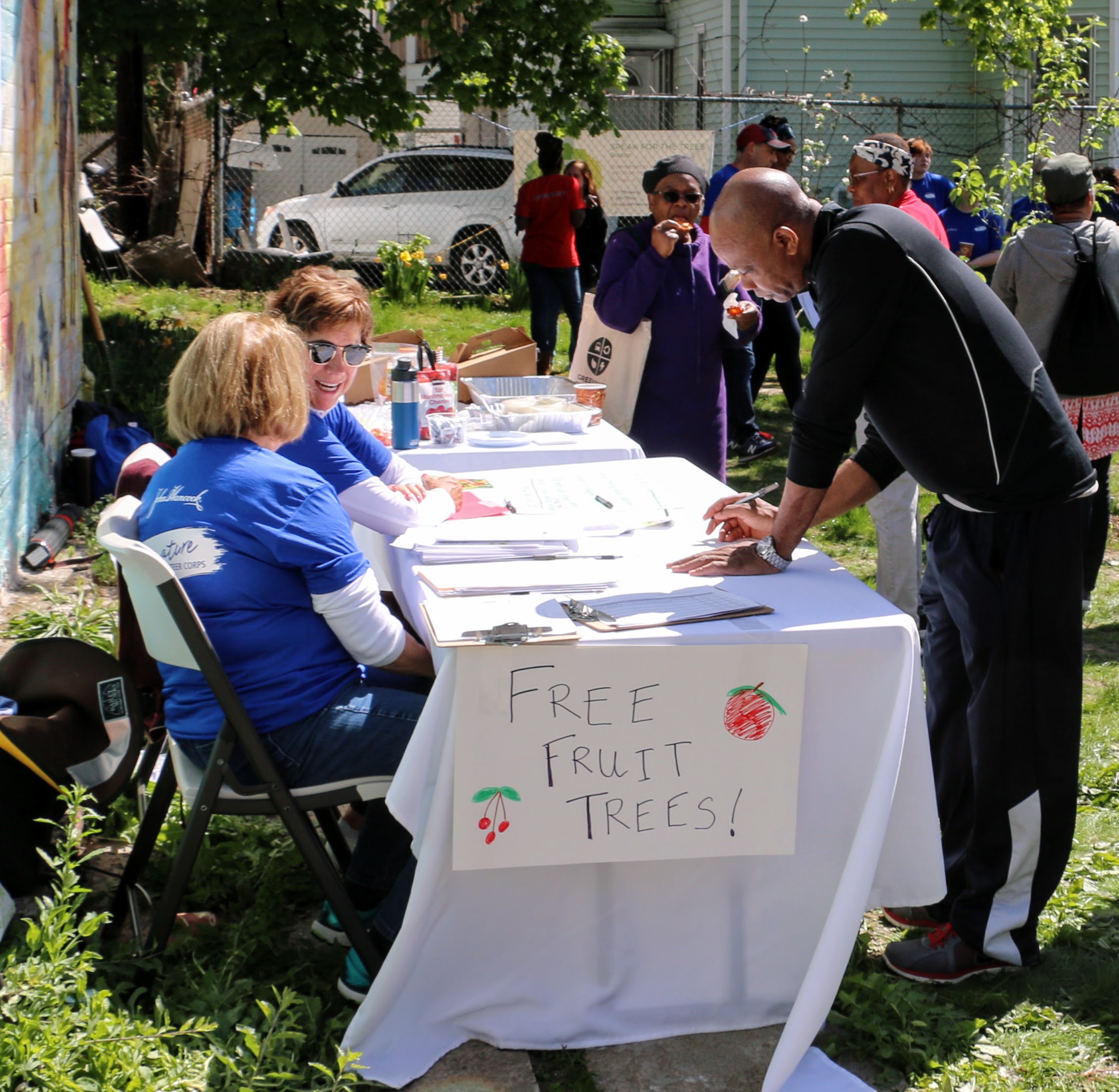
Tree giveaway event. Photo: SFTTB
Beginning in the 1930s, redlining divided urban areas by socioeconomic class, resulting today in the unequal distribution of tree canopy in Boston. These red lines have resulted in natural “green lines” today. For example, while neighborhoods such as East Boston have less than 10% canopy coverage, the coverage in Jamaica Plain and West Roxbury nears 50%. Knowing the benefits of trees, it’s no surprise that communities lacking them face hotter summers, poorer air quality, and less livable neighborhoods. Learn more about the distribution of trees and its relationship to people and environment at our Tree Equity map.
Further Resources
To learn more about the benefits of urban trees, we’ve collected our favorite resources below.
Vibrant City Labs
Vibrant Cities Lab houses various resources about urban forestry and the benefits urban trees provide. You can access case studies, research articles, and different guides to name a few of the resources.
Boston Public Library’s “LibGuide”: Exploring Trees and Equity in Boston through Literature
Learn about tree and nature equity in Boston and trees in literature and art. Developed in partnership with Speak for the Trees.
Arbor Day Foundation: Benefits of Trees
Learn more about the various benefits of trees in urban environments, such as fighting climate change and saving energy.
American Forests: Tree Equity in America’s Cities
Use this resource to learn more about Tree Equity is why it is so important to create in all cities, including Boston.
Further Reading
Washington Post Article: Deadly air pollutant ‘disproportionately and systematically’ harms Americans of color, study finds
Read this article to learn more about a recently published study on environmental racism with regards to people of color being exposed to higher levels of air pollution than average. (Read the full scientific article here: PM2.5 polluters disproportionately and systemically affect people of color in the United States)
The tree cover and temperature disparity in US urbanized areas: Quantifying the association with income across 5,723 communities
Learn more about the relationship between income and temperature in cities across the United States in this recently published study.
Urban Trees and Human Health: A Scoping Review
Use this literature review to learn more about how tree cover is associated with improved human health in multiple capacities, especially with proper tree selection.
City of Boston Tree Canopy Assessment
Find out more about Boston’s tree canopy by reading the City of Boston’s Tree Canopy Assessment which analyzes the change in tree canopy from 2014 to 2019.
